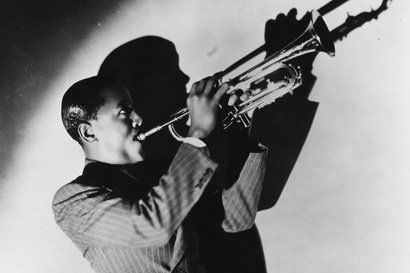
Jazz thrives on debate. Sometimes, its aficionados can appear to dig cutting arguments as much as killing solos. But when the National Jazz Museum in Harlem announced last week that it had acquired approximately 100 hours of high-quality live radio broadcasts by giants from the swing era, something rare happened: a moment of complete accord. Everyone seemed to agree that the music—recorded off the air by engineer Bill Savory, who used topnotch equipment during studio downtime—had to be heard.
Experts claimed that musicians we thought we knew might have their legacies further enlarged, while comparatively unknown sidemen could finally receive their artistic due. The New York Times, which provided the first excerpts from the musuem's digitizing efforts, also ran an editorial suggesting that Congress should step in and clear away the red tape; dozens upon dozens of copyright claims could be made by the estates of musicians who appear on Savory's personal recordings. And with that, jazz's debating society kicked into gear once again, asking how the claims of artists' estates ought to properly be weighed against the public's desire to hear long-lost material.
As that discussion continues, however, the museum is making short clips from various tracks available to select news outlets, including NEWSWEEK.
1. "Truckin'": Vocalist Mildred Bailey reuniting with Paul Whiteman's band in 1935, including a solo by trombonist Jack Teagarden, on Sept. 19, 1935.
2. "Bugle Call Rag": Count Basie's 1940 ensemble, featuring tenor saxophonist Lester Young, on a tune this band never recorded in the studio, on March 8, 1940. Personnel: Buck Clayton (tp, arr); Harry "Sweets" Edison, Al Killian, Ed Lewis (tp); Vic Dickenson, Dan Minor, Dicky Wells (tb); Tab Smith (as, sop, arr); Earl Warren (as); Lester Young, Buddy Tate (ts); Jack Washington (as,bar); Count Basie (p); Freddie Green (g); Walter Page (b); Jo Jones (d).
3. "Tea for Two": Trumpeter Roy Eldridge jamming on "Tea for Two" in 1938, in an all-star band including Lester Young, Benny Goodman, Teddy Wilson, and Jo Jones, on Nov. 16, 1938. Personnel: Roy Eldridge (tp), Lester Young (ts), Benny Goodman (cl), Teddy Wilson (p), Ben Heller (g), Sid Weiss (b), Jo Jones (d).
4. "Stardust": The very last solo recorded by Texan tenor saxophonist Herschel Evans in a session led by Lionel Hampton, on Dec. 28, 1938. Evans died just a few months later. Personnel: Charlie Shavers (tp), Vernon Brown (tbn), Dave Matthews (as), Herschel Evans (ts), Howard Smith (p), Milt Hinton (b), Cozy Cole (d), Lionel Hampton (vb, p).
5. "Honeysuckle Rose": Benny Goodman soloing on Fletcher Henderson's arrangement of "Honeysuckle Rose" on Nov. 30, 1938. Personnel: Harry James, Ziggy Elman, Chris Griffin (tp); Red Ballard, Vernon Brown (tb); Benny Goodman (cl); Dave Matthews, Noni Bernardi, Arthur Rollini, Bud Freeman (saxes); Jess Stacy (p); Ben Heller (g); Harry Goodman (b); Lionel Hampton (d).
6. "Jazz Me Blues": Trumpeter Bobby Hackett solos during a 1938 jam session led by clarinetist Joe Marsala on Dec. 7, 1938. Personnel: Bobby Hackett (cornet), Joe Marsala (cl), Ernie Caceres (bar), Joe Bushkin (p), Art Shapiro (b), George Wettling (d).
7. "Chinatown, My Chinatown": Vibraphonist Lionel Hampton moves over to the piano during an all-star jam session on Dec. 28, 1938 (the same session as "Stardust"). Personnel: Charlie Shavers (tp), Vernon Brown (tbn), Dave Matthews (as), Herschel Evans (ts), Howard Smith (p), Milt Hinton (b), Cozy Cole (d), Lionel Hampton (vb, p).
8. "Rehearsing for a Nervous Breakdown": Bassist John Kirby's Sextet plays in 1940, featuring trumpeter Charlie Shavers, on July 28, 1940. Personnel: Charlie Shavers (tp), Buster Bailey (cl), Russell Procope (as), Billy Kyle (p, arr), John Kirby (b), O'Neil Spencer (d).
Uncommon Knowledge
Newsweek is committed to challenging conventional wisdom and finding connections in the search for common ground.
Newsweek is committed to challenging conventional wisdom and finding connections in the search for common ground.





